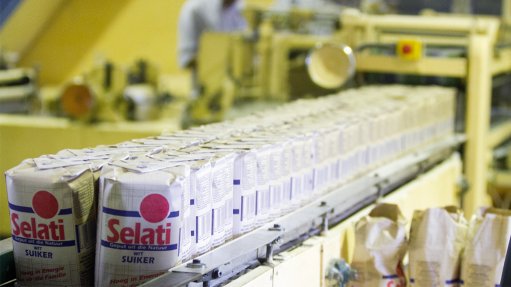
SWEET DEAL
Local sugar producers will be supported and given greater preference through the newly minted sugar master plan
Photo by: Creamer Media
The virtual signing of the much-anticipated Sugarcane Value Chain Master Plan 2030 has been welcomed by all stakeholders of the South African sugar industry, according to a statement issued by the South African Sugar Association (Sasa) last month.
“This is a momentous occasion for the industry and South Africa holistically. We are breathing life into the sugar industry, which has been in the intensive care unit for a number of years owing to serious challenges such as the incursion of sugar imports, the insufficient tariff, sugar tax, dwindling local revenues and other deleterious external factors,” said Sasa independent chairperson Sindi Mabaso-Koyana on behalf of the country’s sugar industry.
The optimisation of the local market and diversification into fuel ethanol are some of the most critical elements of the master plan.
Jointly spearheaded by Trade, Industry and Competition Minister Ebrahim Patel and Agriculture, Land Reform and Rural Development Minister Thoko Didiza, the master plan seeks to ensure stability, growth and sustainability of the industry. The Ministers were ably assisted by Trade, Industry and Competition Deputy Ministers Nomalungelo Gina and Fikile Majola, as well as Agriculture, Land Reform and Rural Development Deputy Minister Mcebisi Skwatsha.
The inclusive process of developing the ‘patriotic’ master plan was facilitated by Patel’s sectoral adviser Harald Harvey.
“We wish to express our heartfelt gratitude to President Cyril Ramaphosa, the Ministers and deputy Ministers for listening to our cries and leading a process to resuscitate the industry,” said Mabaso-Koyana.
Sasa members, including the South African Cane Growers’ Association, the South African Farmers Development Association and the South African Sugar Millers’ Association, have also thrown their weight behind the master plan – fully committing to its implementation.
The master plan is structured in a phased approach with clear targets and implementation plans. Phase 1 focuses on immediate actions and commitments that are focused on addressing the short-term crisis, stabilising the industry and creating a window of two to three years during which the industry will undergo restructuring to set the foundations for the future.
It will also facilitate accelerated planning through joint task teams to set the detailed strategies and plans that will deliver on the long-term vision.
“We are happy to report that all stakeholders are already fully on board as evidenced by a substantial increase in local sales in the current financial year. Sales to both the direct and industrial markets have performed well and exceed estimates. Relative to the previous season, sales to the direct market are ahead by more than 50 000 t,” said Mabaso-Koyana.
She stressed that the implementation of the master plan would be characterised by intensified efforts aimed at ensuring meaningful transformation in the whole value chain, women empowerment and advancement of small-scale growers.
“We would like to assure everyone that issues of good governance and compliance will not be compromised at all. There will be accountability, transparency and operating within the parameters of the law throughout,” Mabaso-Koyana concluded.